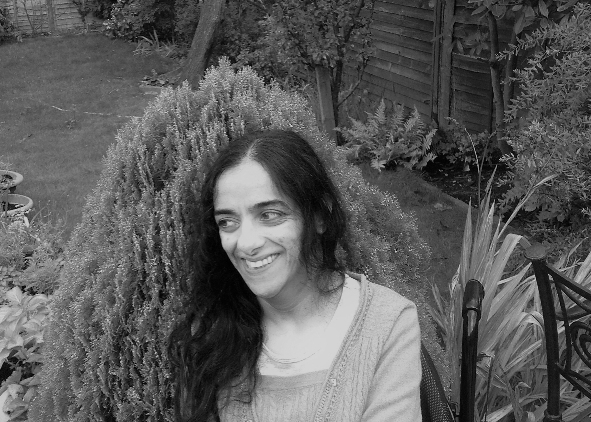
Thanks for stopping by!
Sapna Ramnani
Thanks for stopping by!
ABOUT MY PHD
This PhD sets out with the mission of addressing two specific problems directly.
1. The impact of the use of a wheelchair and other physical issues related to my motor functions in the way that I make films (in terms of the physicality of operating a camera).
2. The physical effort of typing or using alternative communication devices, like working with an assistant for input of my words on screen.
To address these two issues, I put myself into the frame as the subject of a practice-based research study that might provide some solutions to provide more agency and independence not only for me, but for others too.
During this PhD, I adapted conventional ways of interviewing on camera to make it possible for filmmakers with speech and communication impairments to take a more journalistic and spontaneous approach to documentary production with the physical limitations of film-makers like myself in mind. This unique approach to documentary production will create possibilities for new ways of presenting information and issues to audiences. This study explored how film-makers with complex disabilities and communication impairments are able to produce documentaries independently and how technology and conventional interview techniques can be adapted to make this process easier.
PhD TITLE
'Gaining Independence in Documentary Production through Assistive Technology: On-camera Interview Techniques Developed by, with and for People with Complex Disability'
RESEARCH SUMMARY
The primary focus of this study was to examine methods to enable film-makers with communication impairments to take a more active role both in front of and behind the camera. This could potentially provide a voice for people with disabilities who are currently misrepresented and under-represented in the media.
RESEARCH PURPOSE
Conducting interviews on-camera provides depth and insight into the world of others. If the interviewer has a disability, it affects interaction with their interviewees, which impedes the quality of the interview. An autoethnographic and intuitive approach lends itself to subjectivity. The aim was to develop a method that provided greater control over the interview process, and deeper engagement with interviewees. I interviewed people myself without focusing on my disability.
METHODOLOGY
Analysis from most other researchers observing people with disabilities is based upon their observations or conclusions from what participants told them. The methodology orientated my research to my perspective as the disabled interviewer, which provided reflexivity. I accounted for my interviewee’s experiences, based upon their conduct and reactions towards me, backed up by their feedback form responses. The research was analysed using a more intuitive approach, catering to my specific requirements, rather than a strictly auto-ethnographical approach.
DATA
17 on-camera interviews and 17 interviewees in total
14 interviews where all 17 interviewees interviewed while sitting down
3 interviews where 5 interviewees both sat down and engaged in activities
I communicated using a speech output device for 4 interviews, and a Personal Assistant for 13 interviews.
FINDINGS
I successfully applied this innovative methodology to interview trials. This led to informative, relevant, deep and interesting conversational interviews of broadcast quality. It overcame the limitations of my disability. This methodology could potentially help other film-makers and researchers in identifying the contextual challenges within an academic framework, to find their own practical and credible solutions.
SUPERVISORY TEAM
School of MME, College of Engineering & Architecture
Head of School:. Prof Kenneth Stanton
College Principal:. Prof Aoife Ahern
Principal Supervisor: Prof Lizbeth Goodman
Expert Advisor: Prof Cahal McGloughlin
Doctoral Studies Panel: Assoc Prof Suzanne Guerin (Chair),
Dr Mick Donegan, Prof Mickey Keenan, Prof Eamonn Jordan
With special thanks to my informal advisor, Jenny Kleeman.







